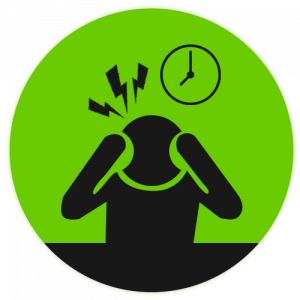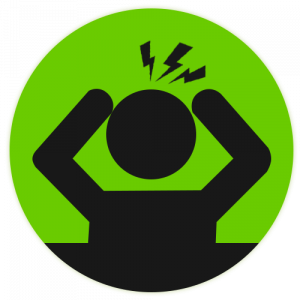Marijuana is becoming popular around the world for its benefits in the field of medicine. Like any other substance like tobacco and alcohol, if abused, can affect the quality of life of the user. While Marijuana is not damaging to the health unlike tobacco or alcohol, being too hooked on any substance can have an impact to the user’s performance at work and everyday life. True enough, managing marijuana withdrawal can be a challenge to those who lack the right information.
Here at Greendorphin, we have put together a thorough guide on how you will be able to deal and manage withdrawal, if have come to the phase of taking in “too much” of the good stuff, and have decided to take a pause or quit for one reason or another.
Life happens and we all may come across some parts of our life when we have to cut back on Cannabis, or go cold turkey for one reason or another.
How to Know When to Stop

Users who tend to consume Marijuana more frequently may experience the symptoms of Marijuana withdrawal when they finally decide to quit. And this goes the same with any other substance, like caffeine or nicotine. When caffeine and nicotine are taken regularly, users also experience withdrawal symptoms when stopped. Cannabinoid receptors level will then normalize and change the users’ physical and psychological state.
The majority of the Marijuana withdrawal symptoms are psychological, some are physical, but not dangerous. The symptoms can be felt instantaneously, withdrawal signs typically show on the first day of quitting and intensifies within two to three days. Symptoms may last up to two weeks, while sleepless nights may linger up to thirty days of quitting.
What are the Symptoms of Marijuana Withdrawal?

Most people who attempted to quit marijuana had their own personal reasons. Such as not fitting the budget, not suited to lifestyle and posing as a job risk due to random drug tests.
Just like any other substance, with prolonged use, withdrawal wouldn’t be like a walk in a park. The cravings and marijuana detox period can be very uncomfortable and in rare cases may seem impossible to overcome, but since marijuana is natural and organic, the withdrawal symptoms are not physically dangerous. Here are some of the Marijuana symptoms experienced by users.
- Insomnia
- Lucid dreams
- Anxiety
- Nervousness
- Depression
- Irritability
- Muscle twitches
- Loss of appetite
- Abdominal pains
- GI upset
- Chills
- Frequent vomiting
- Restlessness
- Marijuana cravings
Other Factors Affecting Severity of Marijuana Withdrawal

Degree of Dependence
The higher dependency you have on marijuana, the higher your chances to experience withdrawal symptoms.
History of Marijuana Use
The amount of time marijuana was consumed and the quantity of every use could potentially affect the withdrawal symptoms. The longer the consumption and the larger quantity of usage are more likely to have difficult withdrawal symptoms. In this case, adults have more difficulties in handling the withdrawal symptoms due to longer history of use.
Mindset
Some marijuana users fail to overcome withdrawal symptoms simply because they lack the motivation that they can surpass these symptoms. If you have issues with your motivation or with not believing you can do it, then read on. Quitting Cannabis is simple and you can do it whenever you need to.
Coping with Marijuana Withdrawal

The first week of marijuana withdrawal is the most challenging period you’ll ever experience. But once you surpassed this, your chances to succeed would significantly go higher. Below are some helpful tips on how you can handle the symptoms and make it somewhat easier to overcome as you go along your road to sobriety.
Insomnia

Sleeplessness is the most common symptom of marijuana withdrawal. And this worsens the other symptoms due to the irritability of lack of sleep. You can reduce the overall discomfort of marijuana insomnia by trying out the techniques below.
No Caffeine
If you are a heavy coffee drinker, this is the best time to cut back. Caffeine from coffee will boost your energy and will highly likely to give you more sleepless nights. But do not totally remove coffee from your system. Caffeine abstinence can lead to another withdrawal which causes mild to severe headaches.
No Strenuous Exercise Close to Bedtime
Similar to caffeine, exercise boosts your energy and improves metabolism. So, avoid any intense exercises two hours before bedtime.
Avoid Entertaining Gadgets
Devices such as televisions, phones, laptops can be a major distraction in your goal to sleep. These gadgets can capture your interest and will keep you more awake. Make sure to avoid tapping on your phone or chatting online through your laptop two hours before sleep.
Make Your Bed
It is important to make your bed enticing to sleep in. Help yourself by creating the best environment to sleep in as possible to increase your chances of a good night sleep.
Music and Lighting
Create a mood in your bedroom. Avoid unnecessary additional lighting and music that will most likely keep you wide awake.
Herbal Medications
You can try to use calming herbs that will help you sleep. You can either drink the herbs as a tea or vaporize them for higher potency.
Get out of Bed
If you’ve been rolling in your bed for quite some time, don’t push it. Get up and do something else for half an hour to distract you in forcing yourself to sleep. Reading a book might help you get back on track.
Irritability and Depression

Getting easily irritated during the marijuana withdrawal is normal. This is caused by the decrease of Cannabinoid intake as you stopped using Cannabis. Now your body is adjusting back to utilize Anandamide only, the body’s endogenous substance to interact with the endocannabinoid system.
Deep Breaths
Mood swings are short-lived symptoms of marijuana withdrawal which can easily be handled. Instead of acting on it contentiously, take a deep breath and think that this is just a temporary phase towards your success to sobriety. Do breathing exercises as well to be accustomed in calming yourself whenever you feel that you are about to burst in anger.
Take Time
Whenever you encounter someone with antagonism do a countdown. Count slowly from 10 down before you respond to calm yourself and have time to think about the right words to say.
Avoid Anger
Try not to engage in anger-provoking situations. Quickly avoid situations that you know would disappoint you.
Exercise
The best exercise you can do to combat irritability is yoga. Studies show that yoga relieves depression and gives a great level of happiness and boosts your immune system. Yoga is a great activity with Cannabis as well as without it.
Hot Bath
Soak yourself in a hot bath, put in some calming scents such as lavender and enjoy a total relaxation. Hot baths are known to relieve anxieties.
Nausea and Loss of Appetite

Food Selection
Avoid spicy and unhealthy fatty foods. Spicy foods and unhealthy fatty foods can cause gastronomical problems. And also, eat cold or even raw foods, which are likely to have less odor than hot processed meals that can induce nausea.
Take a Popsicle
If nausea worsens, get a popsicle, it can help reduce the feeling of nausea.
Food and Water. Do not consume food and water simultaneously, it will make you feel full easily and lose your appetite.
Headaches

Try other herbs
Dry some natural remedy, such as Chamomile tea to ease headaches.
Stay Hydrated
Drink as much water as you can to ease the pain from headache. Staying hydrated can even prevent headache in the first place, so keep your water bottle handy at all times.
Meditate
Research proves that meditation reduces incidents of headaches for about 30% and totally eliminates it in a long run. Take a few minutes out in the morning or at the end of day or both. Practicing meditation could have a great effect on achieving your goal of quitting.
Determination is the Key
Managing Marijuana withdrawal symptoms may be difficult for some of us, but with determination and motivation, anyone can definitely overcome it. It may take time and patience to surpass these challenges, but we can all do it. And if you think you need help, you can always count on your family and friends or even seek assistance from health professionals.
How were you able to deal and manage Marijuana withdrawal?
Share your personal stories with us!
- CBD Gummies Usage for Different Age Stages: A Comprehensive Guide - April 24, 2024
- Safely Navigating the World of Magic Mushroom Gummies: A Comprehensive Guide - March 28, 2024
- What Is CBD And Why Should You Use It? - March 8, 2024


